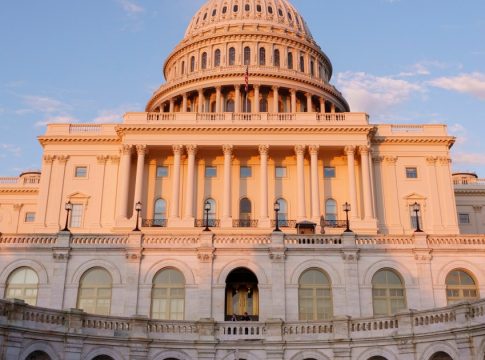Senate Republicans Push for Controversial AI Regulation Moratorium
As Congress races to finalize their tax and spending package known as the Big Beautiful Bill, a controversial provision regarding artificial intelligence is stirring significant debate. This provision proposes a 10-year moratorium on state-level laws regulating AI—a move that has caught the attention of lawmakers, industry leaders, and civil rights advocates alike.
The Case for State Regulations
The rapidly evolving field of AI faces a patchwork of state laws targeting various concerns, from banning deepfake technologies used in nonconsensual pornography to limiting the deceptive use of AI in political campaigns. Advocates for state-level regulation argue that local governments are better positioned to address the imminent risks posed by AI technologies, particularly as these developments could lead to unforeseen consequences in the coming decade.
Larry Norden from the Brennan Center voiced strong concerns over the pending moratorium, emphasizing its unprecedented nature and potential dangers. “Preventing states from taking action is risky when we don’t fully understand AI’s capabilities,” he remarked.
Bipartisan Opposition Emerges
Interestingly, opposition to the moratorium spans both sides of the political aisle. Some Republican senators, including Josh Hawley and Marsha Blackburn, have publicly expressed their disapproval, citing the necessity for states to safeguard citizens against evolving digital threats. Blackburn pointedly stated, "We cannot prohibit states across the country from protecting Americans…against the harms of AI."
Moreover, an open letter signed by 260 state legislators and 40 state attorneys general reflects widespread dissent, emphasizing that AI will pose significant public policy challenges over the next decade. Advocates for consumer rights and protections have similarly voiced apprehensions, arguing that the moratorium could impede laws meant to prevent algorithmic discrimination and other AI-related abuses.
Industry Perspectives
On the other side, major players in the AI sector, such as Google and Microsoft, contend that a cohesive federal approach is essential for maintaining competitiveness—especially against global rivals like China. They warn that a fragmented patchwork of state regulations could inhibit innovation and complicate compliance for businesses operating nationwide.
OpenAI’s chief global affairs officer pointed out that clarity in regulations is vital for the future of AI deployment, arguing against the potential chaos of having 50 different states enacting conflicting laws.
Widespread Implications for Society
The stakes are high. Civil rights organizations and child advocacy groups fear that the moratorium will hinder legislative efforts to protect vulnerable communities, including minors exposed to AI-enabled exploitation. The National Center on Sexual Exploitation has decried the provision as a "Trojan horse" that could exacerbate existing harms tied to technology.
As knee-jerk reactions to technological advancements often lack thorough understanding, the debate around this moratorium reflects a broader conversation about how society can stay ahead of powerful AI tools that, while promising immense benefits, also harbor potential risks.
Conclusion
The proposed AI regulation moratorium stands at the crossroads of innovation and ethics, highlighting a fundamental need for dialogue between federal lawmakers, tech companies, and the public. As discussions unfold, the balance between fostering a competitive AI landscape and ensuring public safety remains a critical concern in shaping the future of this transformative technology. With opinions sharply divided, all eyes are on Congress as they prepare for a crucial vote on this contentious issue.

Writes about personal finance, side hustles, gadgets, and tech innovation.
Bio: Priya specializes in making complex financial and tech topics easy to digest, with experience in fintech and consumer reviews.

